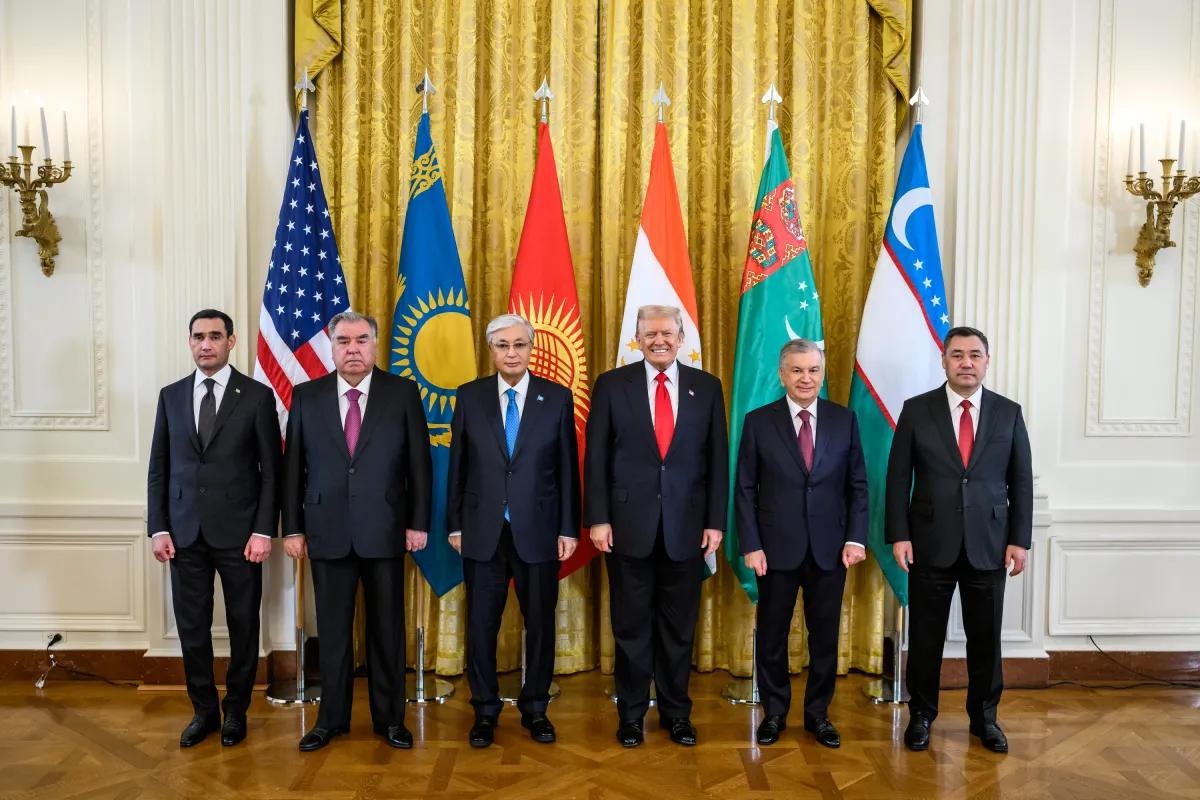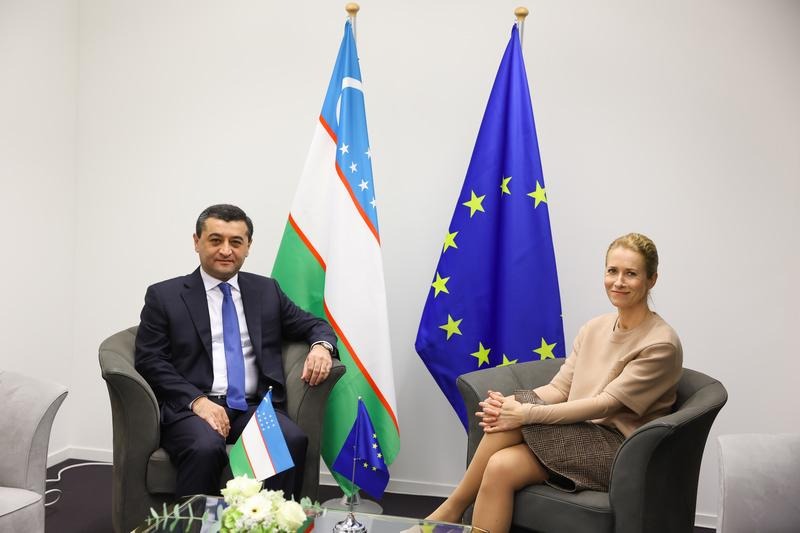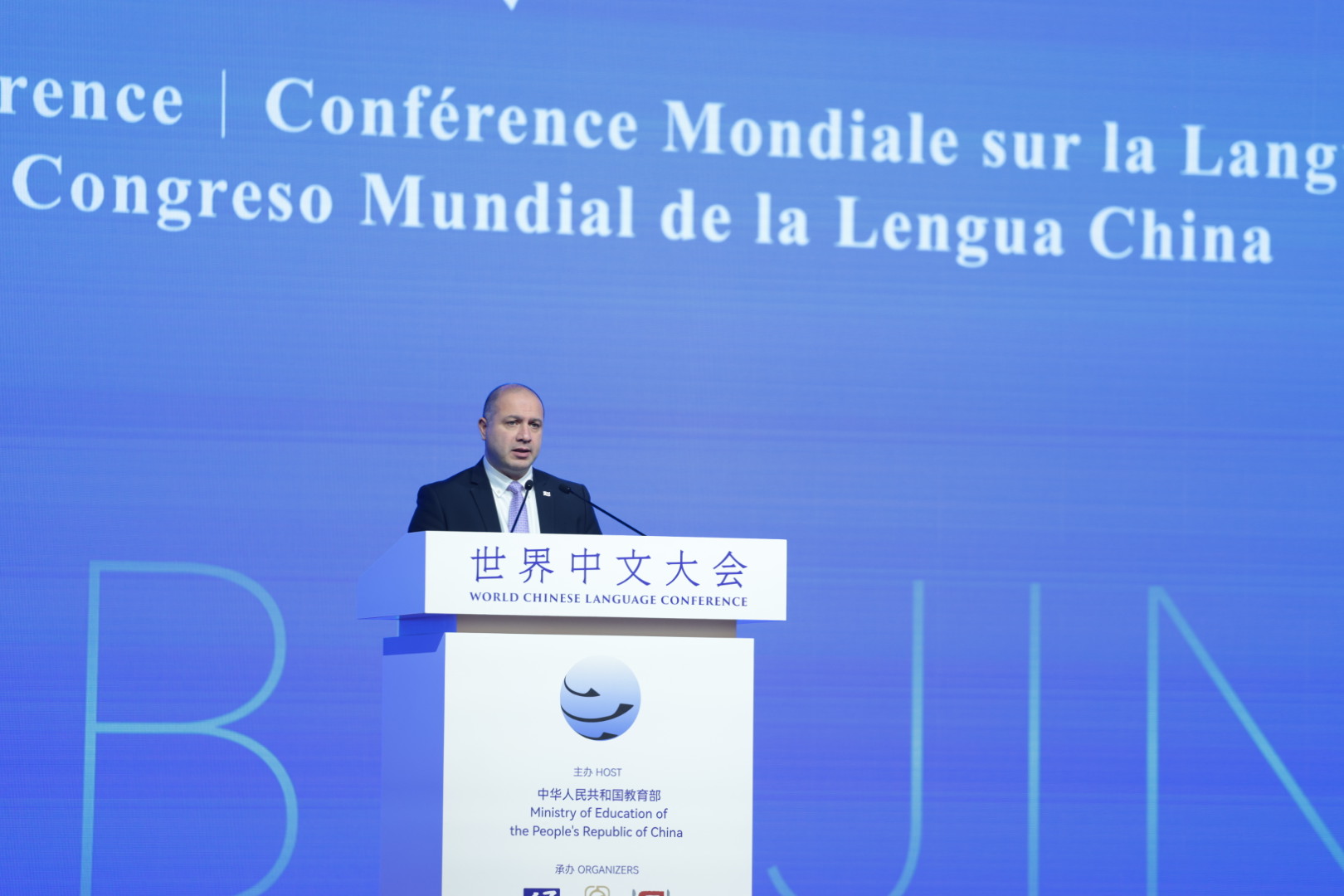
Japan Seeking to Expand Its Economic Footprint in Central Asia
Japan Seeking to Expand Its Economic Footprint in Central Asia
Executive Summary:
- Japan, the fifth largest economy in the world, is making new moves to gain access to natural resources and industries in Central Asia, sparking tension with Moscow and Beijing.
- The Japanese government views recent Central Asian agreements on borders as opening a new era in which Japanese companies seek to gain access to Central Asia’s natural resources.
- Since those agreements were signed, the Japanese government has stepped up diplomatic contacts with Central Asian governments in pursuit of expanded economic ties, but Japan’s effort may be limited by Russian and Chinese reactions to its moves.
The resolution of border disputes in Central Asia over the last two months has led to a sea change in Japan’s approach to the region (see EDM, March 12, April 16). This shift, however, may bring Japan into conflict with the People’s Republic of China (PRC) and the Russian Federation, the two outside powers that have attempted to dominate the situation in Central Asia. Until the resolution of disputes first between Kyrgyzstan and Tajikistan and then among all the countries of the region, Japan had pursued soft power initiatives for two decades. Now, Tokyo has decided to seek a stake in the economies of Central Asian countries, especially in their natural resource holdings.
In August 2004, Japan and the countries of Central Asia formed the Central Asia Plus Japan Dialogue, a platform promoted by Tokyo and Kassym-Jomart Tokayev, who was then Kazakhstan’s foreign minister and is now its president (Ministry of Foreign Affairs of Japan, August 28, 2004). In the years since, these countries have held a number of meetings at the ministerial or deputy ministerial level with Japan (Ministry of Foreign Affairs of Japan, March 14). As a result, Japan provided project financing and loans to assist the countries in the region in state building. In 2024, for example, Japan agreed to loan Uzbekistan 39 billion Japanese Yen (approximately $268 billion) to advance Uzbekistan’s transition to a market economy and enhance social inclusiveness and environmental sustainability (Japan International Cooperation Agency, August 13, 2024). In the period 2023 to 2024, Japan invested $42.5 million in the economy of Tajikistan and has engaged in a number of grant aid cooperation including road maintenance and solar energy installation projects, safety and efficiency improvements at the Dushanbe International Airport, and scholarships for Tajik students to study at Japanese universities (Daryo, August 18, 2024; Japan International Cooperation Agency, accessed May 1). These soft power projects expanded Japan’s influence but not its economic footprint (Japanese Ministry of Foreign Affairs, August 28, 2004; Journal of International and Advanced Japanese Studies, February 2019). This platform was slated to be capped by a summit meeting between these countries in 2024, but that meeting was canceled because the Japanese prime minister was forced to stay home to deal with the threat of an earthquake (The Diplomat, August 8, 2024).
During that period, Japan was generally able to avoid conflict with other powers interested in expanding their economic role in Central Asia. These powers viewed what Tokyo was doing in soft power areas as complementing rather than conflicting with their efforts. There has been one major exception to that pattern. The PRC’s increased assertiveness and expanded economic position in Central Asia has led to a deterioration in relations between Tokyo and Beijing over the last decade. Japan views this behavior as a geopolitical threat and has taken a series of steps to try to counter that. This effort has done little to slow the PRC’s advance but has certainly raised questions about how Beijing would react if Tokyo began to do more. (On the PRC’s moves, see EDM, March 2, 2022, April 10, May 24, 2023. On Japan’s response and potential impact, see Eurasian Times, July 16, 2024.)
One reason that Tokyo has not done more is that it has feared instability in Central Asia could undermine its efforts and cost Japan its investment. This limiting factor has been largely removed thanks to the signing first by the leaders of Kyrgyzstan and Tajikistan and then by the leaders of several Central Asian countries of an accord on March 31 that marked an end to the territorial disputes that have roiled the region for decades (see EDM, March 12, April 16). More than perhaps any other major power, Japan viewed these accords as “opening the door” for it to expand its role in Central Asia, not only by conducting even more soft power operations but also by ensuring that Japanese firms have gain expanded access to the enormous natural resources in that region (Nikkei Asia, April 14).
In recent weeks, Tokyo has sought to take advantage of that possibility by organizing meetings between Japanese firms and Central Asian governments to explore expanded Japanese involvement in Central Asian economies (Japanese Ministry of the Environment, March 3; Trend News Agency, March 27, April 20). Central Asian governments appear to welcome this development because it gives them yet another option that allows them, in some cases, to play one foreign “partner” off against another. They appear to have made it equally clear, however, that they want Japan to continue its soft power programs, given how effective they have been. Japanese soft power programs have been extremely helpful to the countries of Central Asia, despite recent expansions, they remain far smaller than those of other countries, including most prominently the PRC and Russia (see Jamestown, April 12, 2024; The Astana Times, March 7; Kaspiiskii Vestnik, April 25).
The most prominent move on this new diplomatic chessboard came two weeks ago, when Turkmen President Serdar Berdymukhamedov visited Japan. Berdymukhamedov opened a trade show, met with senior Japanese officials, including the prime minister and the emperor, and conducted talks with other officials and business leaders about expanding trade between the two countries as well as increasing Japanese investment in Turkmenistan’s energy sectors (Turkmenistan Segodnya, April 15; Asman News; Vesti Abroad, April 16). Tokyo may have chosen Turkmenistan for this honor because Ashgabat was cut off from the outside world for a long time due to its constitutionally mandated neutrality. Turkmenistan, therefore, offers more opportunities for latecomers to the game in Central Asia than do other countries there, where outsiders have been more active for far longer (see EDM, May 18, 2023, January 28).
Tokyo has been expanding its economic connections with the four other Central Asian countries as well in recent months, albeit with less high-level fanfare. That approach likely reflects calculations in both Japan and these countries on the possibility that more prominent actions could provoke greater reactions from the PRC and Russia (Japanese Ministry of the Environment, March 3; Trend News Agency, March 27, April 20).
The meeting of the Central Asia Plus China platform in the Kazakh capital of Astana and a statement from Kyrgyz security officials that Moscow may try to distract attention from Russia’s war against Ukraine by destabilizing Central Asia highlight how important these issues are. The Central Asia Plus China platform highlighted the importance the PRC attaches to Central Asia and its role there. Officials on both sides stressed that these ties must not be threatened by anything else, including presumably the expansion of ties between the Central Asian countries and Japan (Nezavisimaya Gazeta, April 27; Kazinform, April 28; DKnews, April 30). The statement from Kyrgyz security officials called attention to Central Asian fears that Moscow may exploit various factors, including outside powers, a favorite Russian technique, to destabilize Kyrgyzstan and other countries in the region (TASS, April 29; EurAsia Daily, April 30).
The Kremlin often focuses on the supposedly nefarious role of outside powers in regions it is concerned with and the PRC’s fears that other countries may steal a march on Beijing in Central Asia and elsewhere. These concerns are a part of the calculus not only in Moscow and Beijing but in Central Asian capitals as well. Consequently, in the immediate future, Japan is likely to move cautiously as it has done up to now, but it is also likely to continue to test the waters given its desire not to be excluded from access to natural resources in Central Asia at a time when the possibilities of their dramatic opening up have come.


